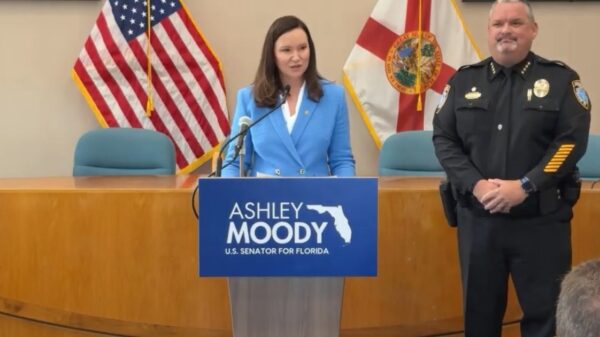State Attorney General Ashley Moody took aim at online human trafficking this week by filing an amicus brief with 24 other attorneys general in the Doe v. Facebook, Inc. case.
Survivors of child sex trafficking brought common-law and statutory claims against Facebook alleging that it failed to warn of, and benefited from, human trafficking on its internet platforms. The Supreme Court of Texas previously held that 47 U.S.C. § 230 barred the plaintiff’s common-law claims and immunized Facebook from liability under a broad interpretation of that statute. Moody argued in a cert petition filed with the U.S. Supreme Court that that overbroad interpretation improperly preempts state law and denies compensation to trafficking victims.
The petitioner in Doe v. Facebook, Inc. alleges that she was trafficked through Facebook’s online platform. Additionally, the petitioner argues that Facebook did not properly inform her of the dangers of human trafficking on the platform because its business model depends on maximizing contacts between users—including contacts with minors. As chair of Florida’s Statewide Council on Human Trafficking, Moody stressed she has great interest in protecting Floridians from human trafficking and enabling survivors to obtain redress for the egregious harms they suffer.
“Big Tech should be helping us end human trafficking, not providing an avenue for predators to solicit and groom minors. Victims of child sex trafficking should be able to hold platforms like Facebook accountable for not doing enough to stop human traffickers from exploiting their platform to victimize minors. What Facebook is allowing is wholly irresponsible, and we will continue fighting Big Tech to protect our children,” Moody said.
The question presented in the brief asks whether Section 230 of the Communications Decency Act provides immunity from suit to internet platforms, regardless of the platform’s own misconduct. The broad interpretation of Section 230, that Facebook asserted and the Supreme Court of Texas agreed with, is inconsistent with Section 230’s plain language—that only covers third-party speech being attributed to the operator or claims surrounding good-faith efforts to restrict access to objectionable content.
Such an overbroad interpretation of Section 230 will leave victims of online abuse with no leverage against site operators, like Facebook, whose business models, one could argue, facilitate abuse.
Moody and the attorneys general from the following states signed on to the amicus brief: Alabama, Alaska, Arizona, Arkansas, Georgia, Indiana, Kansas, Kentucky, Louisiana, Maine, Minnesota, Mississippi, Missouri, Montana, Nebraska, Ohio, Oregon, Pennsylvania, Rhode Island, South Carolina, South Dakota, Texas, Tennessee and Virginia.



















